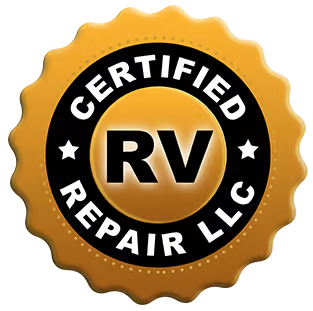RV SOLAR ENERGY PACKAGES
Expert RV Solar Kit Installation
Complete RV solar energy packages with premium solar energy components installed by factory certified RV technicians in Elkhart Indiana.
880 Watt Solar Package GOOD
DESCRIPTION
Our entry-level RV solar energy package complements your generator and is perfect for brief off-grid boondocking excursions.
TECHNICAL SPECS
- 880 watts of solar power
- single controller
- single multiplus II inverter
- 3K inverting power
- 540 AHRS lithium battery bank
1760 Watt Solar Package BETTER
DESCRIPTION
Our mid-tier RV solar energy package offers more capacity for longer adventures, supporting your generator with greater energy independence.
TECHNICAL SPECS
- 1760 watts of solar power
- single controller
- single multiplus II inverter
- 3K inverting power
- 810 AHRS lithium battery bank
2640 Watt Solar Package BEST
DESCRIPTION
Our premium RV solar energy package maximizes off-grid power with advanced solar technology and ample storage for extended adventures.
TECHNICAL SPECS
- 2640 watts of solar power
- dual controllers
- dual multiplus II inverters
- 6K inverting power
- 1620 AHRS lithium battery bank


RV Solar Energy Components by Victron
RV solar energy packages installed by Certified RV Repair feature premium components from Victron Energy, an industry leader in RV solar technology. Our solar packages include the Victron Energy MultiPlus II Inverter/Charger and the Victron BlueSolar Charge Controller, ensuring seamless operation of our RV solar energy system.
In case of a shore or generator power failure, the Multi’s inverter activates in less than 20 milliseconds, allowing computers and other electronic devices to continue functioning without interruption. The Victron controller efficiently gathers and stores energy from the solar panels into our high-quality lithium-ion batteries, optimizing energy collection and enabling the batteries to reach full charge as quickly as possible.
RV Solar Energy Frequently Asked Questions
It depends on your battery storage capacity and the wattage consumption of your air conditioner(s).
The Certified RV Repair 2400-Watt Solar Package offers storage of up to 1620 amp-hours across 6 batteries. Given an efficiency of approximately 45 minutes of air conditioning per 100 amp-hours, a single air conditioner operating at full blast non-stop could last about 10-12 hours, under the hypothetical scenario of an intensely hot day without any additional solar input.
Realistically, conditions are not that severe. On an average day with ample sunlight, allowing the air conditioner to cycle on and off as needed, the fully charged battery bank could power a single air conditioner for potentially a day, depending on how many other electric devices are being used.
Naturally, smaller solar power setups will have reduced battery storage capacities and lower wattage input from the solar panels, leading to a quicker depletion of the battery bank when powering air conditioners.
The cost of upgrading an RV with a solar package varies based on several factors such as the size of the package, the quality of its components, and the complexity of installation. Generally, a basic solar package can start from a few hundred dollars for small systems designed to meet modest energy needs. However, for larger setups intended to power an entire RV, including appliances and air conditioning units for extended off-grid camping, costs can escalate to tens of thousands of dollars.
Yes, solar panels can still produce power on a fully cloudy day, although potentially at a quarter of the output compared to a sunny day. This reduced efficiency is due to the panels’ ability to capture diffuse sunlight, which penetrates through the clouds, but less intensely than direct sunlight. Therefore, while the energy production is diminished, it does not cease entirely, allowing for some level of power generation even under overcast conditions.
Maintaining your RV solar energy system involves ensuring it remains connected to WiFi for regular system software updates, similar to the updates on your smartphone.
In dry and dusty climates, it’s recommended to clean the dust off the panels once a month to maintain optimal power generation. However, in areas with frequent rainfall, the rain naturally cleans the panels, potentially reducing the need for manual cleaning to just once a year.
Installing an RV solar energy package significantly boosts its resale value, largely by expanding travel possibilities through enabling off-grid camping and boondocking. This upgrade is highly valued by prospective buyers, as it offers added energy independence and the freedom to explore remote locations without relying on campsite hookups, making your RV more attractive in the competitive resale market.
Opting for a rv solar energy package on your RV empowers you with the freedom and flexibility to embrace off-grid camping, significantly reducing or even eliminating the need for powered campsite hookups, which can lead to considerable cost savings. The capability to boondock—or camp without external power sources—stands out as a significant advantage, offering you the autonomy to explore and stay in more secluded, picturesque locations.
Moreover, utilizing solar energy is considerably more environmentally friendly than relying on traditional generators, which produce noise pollution and emit greenhouse gases, further preserving the natural beauty of your surroundings. Essentially, having solar on your RV opens up a broader spectrum of America’s landscapes to explore, from remote wilderness areas to off-the-beaten-path destinations, making every trip an adventure with fewer limitations.
While RV solar energy significantly enhances the energy independence of your RV, it cannot entirely replace the need for a generator. On cloudy days or during extended periods when plugging into an external power source isn’t an option, you’ll find a generator indispensable for recharging your batteries. Moreover, it’s always safe and wise to have a generator as a backup. This dual approach ensures that you have a reliable power supply under all circumstances, providing peace of mind and uninterrupted comfort during your travels.
The size of the RV solar energy systemdepends largely on your energy consumption and how long you wish to live off-grid efficiently. The more amp-hours your system has, the longer you can run utilities such as air conditioners—whether you’re managing two AC units versus one makes a significant difference in your energy needs.
Certified RV Repair offers pre-set solar packages designed to meet a range of requirements, but they also provide personalized consultation to help tailor the right size solar system to your specific needs. Essentially, the larger your solar setup, the greater your independence, allowing for a more comfortable and prolonged off-grid living experience.
While it’s technically possible for some enthusiasts to install RV solar energy panels on their RV themselves, hiring a professional is strongly recommended. The installation involves complex wiring and requires a deep understanding of electrical systems to avoid potential hazards. Incorrect installation can lead to extreme negative and costly results, including damage to your RV’s electrical system or the solar panels themselves. A professional installer will ensure that the system is correctly configured for optimal performance and safety, making it a worthwhile investment for peace of mind and the longevity of your solar setup.
For RV use, the best types of solar panels are those that balance power output with a manageable footprint. Smaller panels are typically favored for RVs due to their limited roof space, allowing for a more practical and efficient setup without compromising too much on the energy needs of the vehicle.
Residential solar panels can generate 800 to 1000 watts of power but are often too large for RVs, sometimes measuring up to 8 feet wide. It’s important to choose smaller, efficient solar panels made for RVs to make the most of the limited space.
RV solar panels are built to be durable and, with proper maintenance and care to avoid physical damage, they can last longer than 20 years. Ensuring they are kept clean and free from debris helps maintain their efficiency over time.
The longevity of solar panels makes them a valuable investment for RV owners looking for sustainable and cost-effective energy solutions, offering reliable power supply for decades with minimal additional costs after the initial setup.
Monitoring the performance of your RV solar energy system has become increasingly user-friendly and accessible, thanks to advancements in technology. Most modern solar systems come equipped with a touchscreen interface that allows for real-time monitoring of various metrics such as input and output watts, amps, and battery storage capacity.
Many systems include a companion phone app, enhancing convenience by enabling you to monitor your system’s performance from anywhere. These apps not only provide detailed insights into your solar system’s efficiency but also allow for the tracking of energy consumption and production, helping you optimize your energy usage and maintain your system effectively.
If your RV solar panels produce more electricity than you use, the excess energy is stored in your RV’s batteries until they reach full capacity. The solar charge controller manages this process. It monitors the battery bank’s charge state and, once it detects the batteries are fully charged, it automatically adjusts itself to prevent overcharging. This includes limiting or turning off the power draw from the solar panels to ensure the batteries are not subjected to harmful overcharge conditions. The system is designed to always strive for a fully charged battery bank, ensuring you have a consistent and reliable power supply while protecting the lifespan of your batteries.
Yes, you can use solar power for heating water in your RV, but its feasibility largely depends on whether your water heating system is gas or electric. Electric water heaters, while capable of being powered by solar energy, do not heat water as efficiently as gas heaters.
Water heaters represent a significant energy draw, making them one of the more demanding appliances on your solar power system. If you have an electric water heating system and wish to use solar power, it’s important to ensure your solar setup has sufficient capacity to handle this demand without compromising the energy supply to other essential functions of your RV.
For those with gas water heating systems, using solar power indirectly to run the system’s electrical components is more feasible, although the primary heating mechanism would still rely on gas.
For an RV solar energy system, lithium batteries are the top choice due to their superior ability to maintain a standard charge over time. They provide a more effective and efficient energy storage solution, making them highly preferred over lead-acid batteries.
Lead-acid batteries, while still in use, are considered nearly obsolete in the context of solar technology because of their lower efficiency and shorter lifespan.
The length of time your fridge can run on RV solar energy is determined by the size of your solar system and its battery storage. Considering a typical fridge consumes around 330 watts continuously, equivalent to about 7.92 kilowatt-hours per day, and comparing it to an air conditioner’s usage of 1500 watts, a large solar setup with substantial battery storage can maintain your fridge’s operation for weeks. This assumes minimal consumption by other devices, highlighting the importance of energy management for extended use.
Boondocking duration with solar energy hinges on several factors, including your RV’s energy usage and the solar system’s capacity. For an RV that consumes around 6000 watts continuously, powering everything exclusively on solar would only be feasible for a few hours. It’s not recommended to rely solely on solar power for such high energy consumption.
To extend boondocking periods, it’s advisable to use campsite electricity or a generator as a supplement. Effective energy conservation by turning off unused electrical appliances and using a generator for backup can significantly prolong your off-grid experiences.

